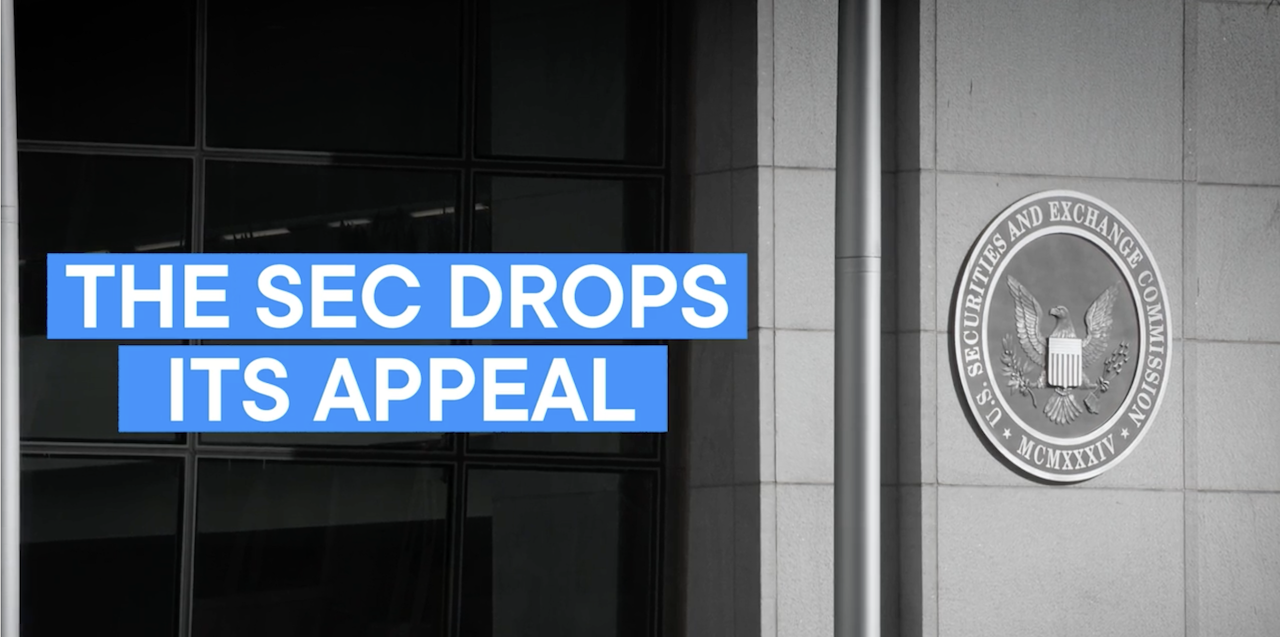
A Watershed Moment for Crypto: The Ripple Case Concludes
The long and arduous legal battle between Ripple Labs and the Securities and Exchange Commission (SEC) has finally come to a close, marking a significant turning point for the cryptocurrency industry. After over four years of intense litigation, the SEC has decided to drop its appeal, a decision that reverberates far beyond the immediate parties involved. This outcome represents a crucial victory not only for Ripple, but for the broader cryptocurrency ecosystem, offering valuable clarity and potentially reshaping the regulatory landscape.
The core of the SEC’s case against Ripple centered on the classification of XRP, Ripple’s native cryptocurrency. The SEC argued that XRP constituted an unregistered security, violating federal securities laws. This argument, if successful, would have had wide-reaching implications, potentially subjecting a vast number of cryptocurrencies to similar regulatory scrutiny. The uncertainty surrounding this classification had created a chilling effect on innovation and investment within the crypto space, hindering growth and development.
The SEC’s decision to abandon its appeal signals a potential shift in their approach to cryptocurrency regulation. While the details surrounding the reasons behind this decision remain somewhat shrouded, it is widely interpreted as an acknowledgement of the complexity and nuances inherent in the digital asset landscape. A drawn-out appeal would have risked further legal uncertainty and potentially damaging precedents. The SEC may have concluded that the costs and risks associated with continuing the appeal outweigh the potential benefits.
This outcome holds several key implications for the cryptocurrency world. First, it offers a degree of legal clarity, albeit limited to XRP in the specific context of this case. The decision does not definitively resolve the broader question of how other cryptocurrencies should be classified, but it provides a valuable data point, setting a precedent that could influence future regulatory actions.
Secondly, the ruling potentially boosts investor confidence. The prolonged uncertainty surrounding XRP’s regulatory status had dissuaded many investors from engaging with the cryptocurrency. With the SEC’s appeal dropped, some of this uncertainty dissipates, creating a more favorable environment for investment and participation. This could lead to increased trading volume and a renewed interest in XRP itself.
However, it’s crucial to acknowledge that this victory doesn’t fully resolve all the regulatory issues facing the crypto industry. The SEC’s approach to cryptocurrency regulation remains multifaceted and evolving. Other cryptocurrencies could still face similar challenges, and the overall regulatory landscape continues to be a work in progress. This outcome regarding XRP is a specific case, and its implications for the broader market should be considered within that context.
Ultimately, the conclusion of the Ripple case marks a significant step forward for the crypto industry. The long-fought battle has yielded a much-needed win for clarity, potentially easing investor anxieties and paving the way for more constructive dialogue between regulators and the cryptocurrency community. The outcome serves as a reminder of the importance of navigating the complex legal and regulatory environment surrounding digital assets, while simultaneously highlighting the ongoing need for a balanced and forward-thinking approach to cryptocurrency regulation. The road ahead remains complex, but this decision offers a glimmer of hope for a more collaborative and less adversarial future.



Leave a Reply